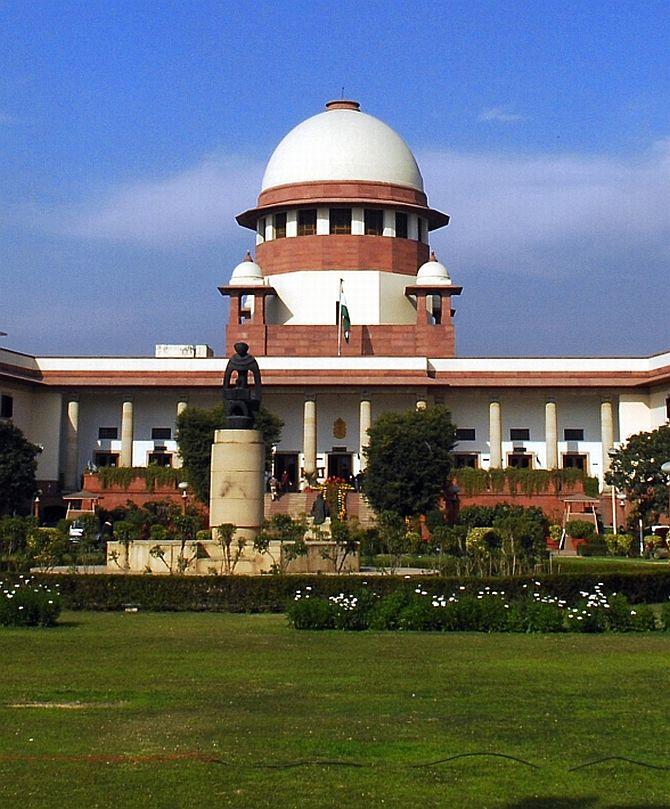Photographs: Toby Melville/Reuters
Disapproving of a Shariat court issuing fatwa and order against a person who is not before it, the Supreme Court on Monday said it has no sanction of law and has no legal status.
The apex court said there is ‘no doubt’ that such a court has no legal status while noting that in some cases, orders were being passed by them which violate human rights and punish innocent persons.
A bench headed by Justice C K Prasad said that no religion, including Islam, allows punishing innocent persons and ordered that no 'Darul Qaza' should give verdict which affects rights of a person who is not before it.
Please ...
Fatwa, Shariat court have no legal sanction: SC
The court passed the verdict on a public interest litigation filed by advocate Vishwa Lochan Madam questioning the constitutional validity of Shariat courts which allegedly run a parallel judicial system in the country.
The All India Personal Law Board had earlier submitted that fatwa was not binding on people and it was just an opinion of a 'mufti' (cleric) and he has no power and authority to implement it.
Please ...
Fatwa, Shariat court have no legal sanction: SC
The counsel, appearing for the board, had said if a fatwa was sought to be implemented against the wish of the person concerned, then he could approach the court of law against it. The petitioner had submitted that the fundamental rights of Muslims could not be controlled and curtailed through fatwas issued by 'qazis' and 'muftis' appointed by Muslim organisations.




article